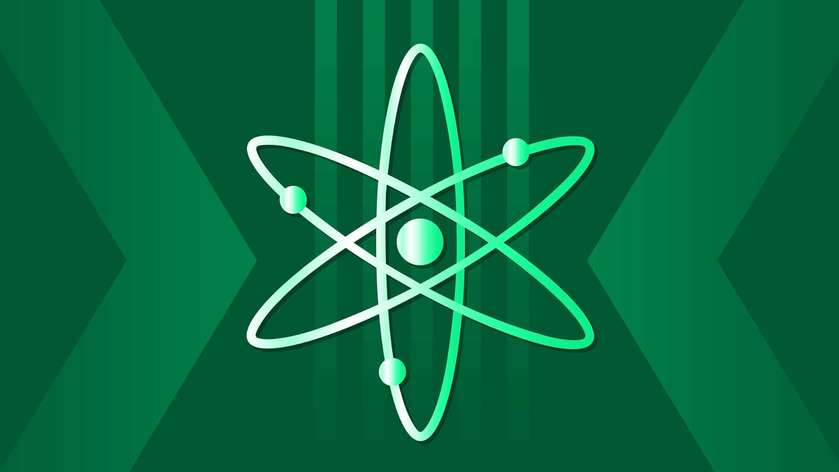- If the latest ATOM 2.0 proposal receives the greenlight from the Cosmos community, it will available for on-chain voting on Oct. 31
- Jae Kwon, the co-founder of Cosmos, has challenged ATOM 2.0 with a proposal of his own
The Cosmos ecosystem revealed the first version of a new white paper intended to revamp the tokenomics of its native token, ATOM, at its annual conference in Medellín, Colombia, last month.
Authors of the paper proposed that the Cosmos Hub would be at the heart of its new interchain security feature, and that there would be changes to the issuance and utility of ATOM.
Initial on-chain voting on the proposal was set for Oct. 3, but community members in the ecosystem voiced concerns centered around ATOM issuance, Zaki Manian — the co-founder of Sommelier and a key member of the Cosmos ecosystem — told Blockworks.
What is ATOM 2.0 issuance
In the existing ecosystem, staking rewards are fundamentally a value transfer between non-staked ATOM to stakers, Manian said.
“Currently in the Cosmos, when a block is created, ATOM tokens are distributed to stakers, validators and the community,” he added. “The mechanism of funding the system by diluting unstaked ATOMs has a time limit, and we need to fix that.”
The ATOM 2.0 white paper, as such, proposes setting up a treasury that would be tasked with using capital to find sources of revenue that are sustainable and not inflationary.
The initial 1.0 version of the white paper proposed minting a significant amount of ATOM, which Manian said would “have inflation go to a very low level — what we call tail emission.”
But the community wanted less front loading of that creation of ATOM.
Taking into consideration community concerns, the Cosmos Hub pushed back the start of proposal voting to Oct. 24 — then again to Oct. 31 — releasing updated versions of the white paper to include suggestions from community members.
“So now, what we propose is a 4 million ATOM mint into the community pool which currently has around one million ATOMs in it,” Manian said. “Then optionally — at the discretion of ATOM holders — ten more mints of ATOM into the treasury, if the project of going out and finding new sources of revenue, that will eventually replace staking revenue, is succeeding.”
A battle of proposals
As white paper changes were being made, Jae Kwon, the co-founder of Cosmos, who resigned from the blockchain in 2020, started receiving attention for his competing ATOM One proposal.
Kwon’s proposal challenged the validity of ATOM 2.0 even though fundamentally, his ATOM One proposal and Cosmos developers’ ATOM 2.0 proposals are quite similar.
The only real difference, according to Jack Zampolin, the founder of Strangelove Ventures and core developer in Cosmos, is the inclusion of the PHOTON token in Kwon’s proposal.
“Internally within the development team, this [PHOTON token] is one of those ideas that keep coming up,” Zampolin said in a YouTube livestream. “I have always been kind of opposed to this for a variety of reasons, the main one being I’ve never seen a two token model work…and I think the major reason is that it distracts from the core message of ATOM.”
“What we’ve done with ATOM 2.0 is build a set of features that work together to build this growth flywheel so that as the IBC economy grows, the ATOM economy can grow, too,” he said. “That to me is more compelling than minting another token [venture capitalists] can play around with and users don’t really know what to do with.”
It’s important to note that Kwon’s relationship with developers in the Cosmos ecosystem has been quite tumultuous, according to earlier reporting by CoinDesk.
Despite Kwon’s efforts, Anna Petrenko —a researcher at Everstake, a staking service platform and one of the largest validators for Cosmos — told Blockworks the community is mostly in favor of ATOM 2.0.
“The mainstream opinion [on ATOM 2.0] is mostly positive, and agrees that Cosmos needs some changes,” Petrenko said. “In our opinion we think that ATOM 2.0 should lead to good results, since interchange security will attract a lot of new projects that will build in the cosmos ecosystem, and significantly scale the ecosystem itself.”
If the signaling proposal for ATOM 2.0’s latest v1.2 white paper receives the greenlight from the Cosmos community, the proposal will be available for on-chain voting Oct. 31 for a voting period of two weeks.











 All while Pfizer—a company with a $2.3 billion criminal fine for fraudulent marketing, bribery, and kickbacks—was given blanket immunity from liability and billions in taxpayer dollars to produce a vaccine in record time with no long-term safety data.
All while Pfizer—a company with a $2.3 billion criminal fine for fraudulent marketing, bribery, and kickbacks—was given blanket immunity from liability and billions in taxpayer dollars to produce a vaccine in record time with no long-term safety data.
























